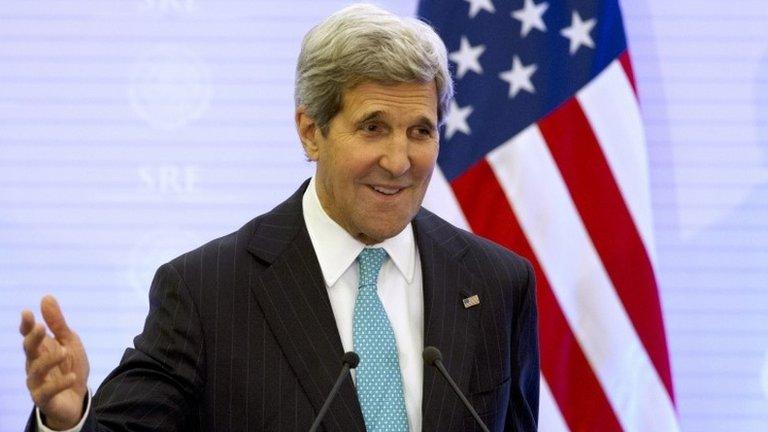US Congress passes bill to impose Venezuela sanctions
- Published
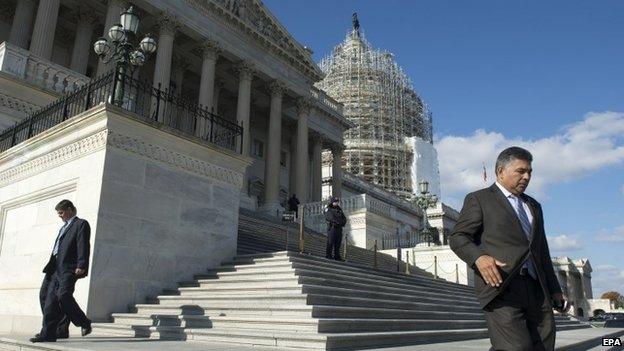
Both houses of Congress have now approved the sanctions move
The United States Congress has passed a bill which would impose sanctions on Venezuelan officials found to have violated protesters' rights.
The vote was passed by the House of Representatives and received similar approval by the Senate earlier this week.
The bill is now likely to be signed into law by President Barack Obama.
Venezuela's President Nicolas Maduro described the move as imposing "insolent imperialist sanctions".
He said the US wanted to "challenge Venezuela with sanctions and threats".
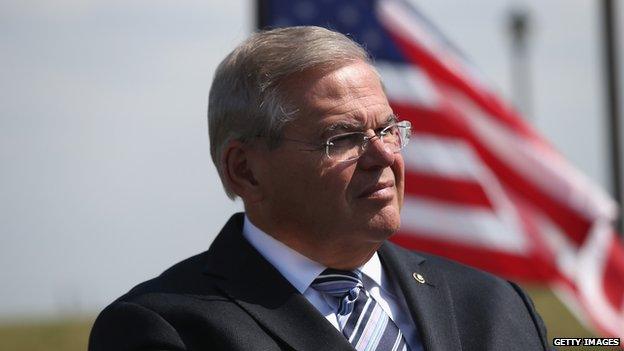
Senator Robert Menendez, who sponsored the bill, said it was an "unequivocal message" to the Venezuelan government
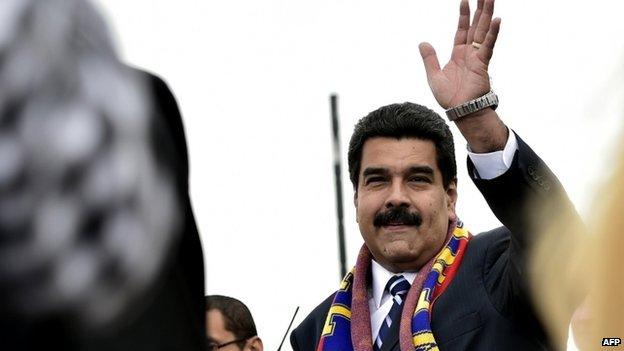
President Maduro has come out fighting against the sanctions
Mr Maduro warned the US leader: "If the crazy path of sanctions is imposed, President Obama, I think you're going to come out looking very bad.
"Who is the US Senate to sanction the homeland of Bolivar?" he asked, referring to the 19th Century Venezuelan independence leader.
Relations between Venezuela and the US have been tense for years and correspondents say these sanctions could mark a further worsening of relations between the two countries.
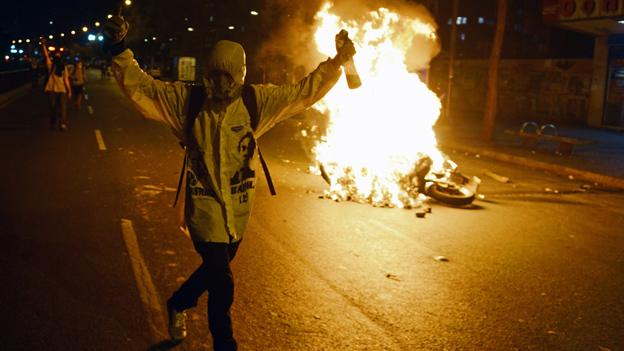
Mass protests erupted in Venezuela earlier this year, some of which turned deadly
Deadly protests
The US Senate on Monday approved the Venezuela Defense of Human Rights and Civil Society Act, external.
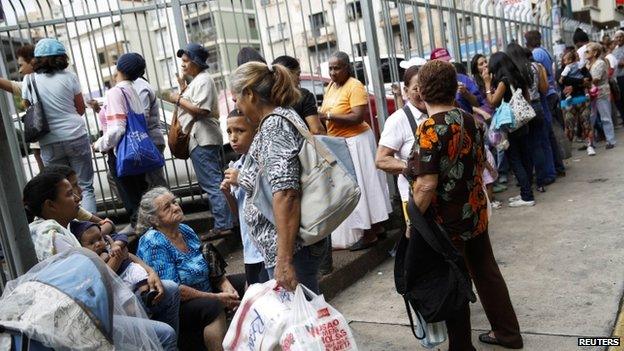
Any implementation of sanctions against Venezuela would come at a time when the country's economy is weakened by falling oil prices, high inflation and shortages of basic goods
The bill targets current and former Venezuelan officials who directed "significant acts of violence or serious human rights abuses against persons associated with the anti-government protests in Venezuela that began on 4 February".
More than 40 people from both sides of the political divide were killed in the protests which took place in Venezuela between February and May.
The United Nations condemned "all violence by all sides in Venezuela" and called on the government "to ensure that people are not penalised for exercising their rights to peaceful assembly and to freedom of expression".
The government said opposition leaders had incited protesters to violence and had been planning a coup against President Maduro.
The opposition said its activists had been unfairly targeted for their political convictions.
At the height of the protests in February, opposition leader Leopoldo Lopez was arrested. He has been charged with inciting violence.
And last week Venezuela's chief prosecutor launched an investigation into leading opposition politician Maria Corina Machado over an alleged plot to assassinate the president.
- Published10 December 2014
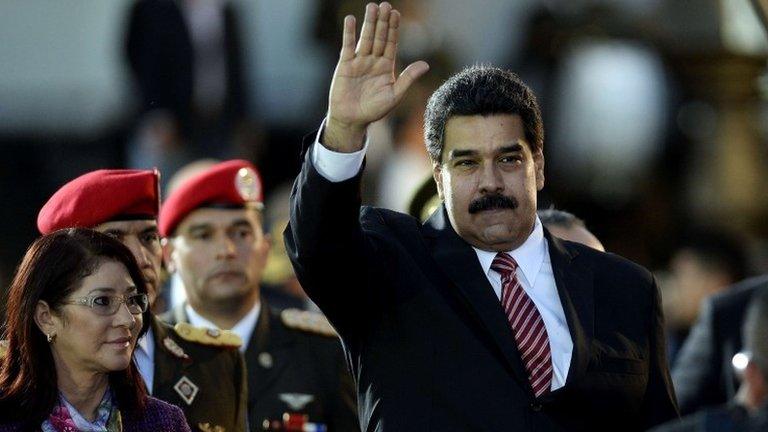
- Published9 December 2014
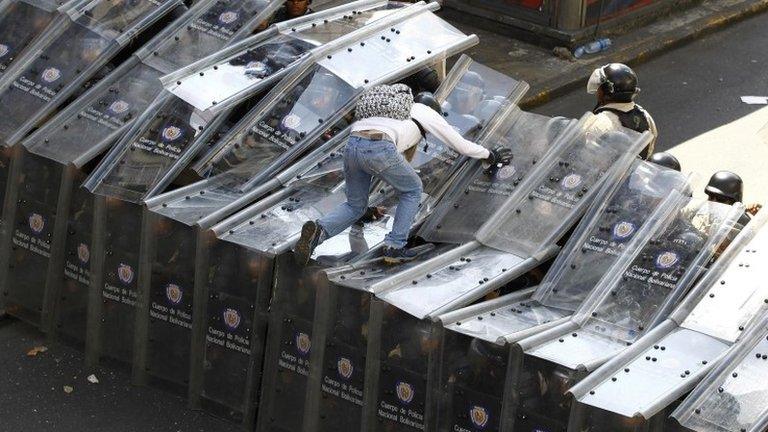
- Published30 July 2014
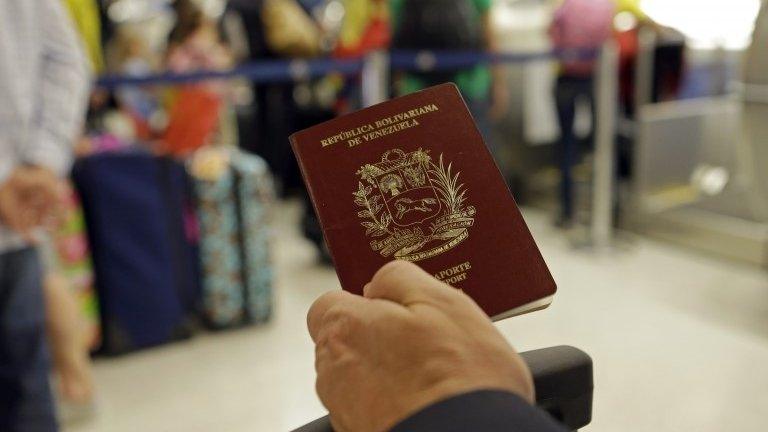
- Published21 May 2014
